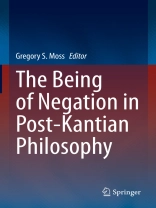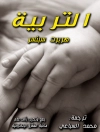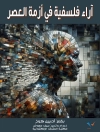By drawing on the insights of diverse scholars from around the globe, this volume systematically investigates the meaning and reality of the concept of negation in Post-Kantian Philosophy—German Idealism, Early German Romanticism, and Neo-Kantianism. The reader benefits from the historical, critical, and systematic investigations contained which trace not only the significance of negation in these traditions, but also the role it has played in shaping the philosophical landscape of Post-Kantian philosophy. By drawing attention to historically neglected thinkers and traditions, and positioning the dialogue within a global and comparative context, this volume demonstrates the enduring relevance of Post-Kantian philosophy for philosophers thinking in today’s global context. This text should appeal to graduate students and professors of German Idealism, Post-Kantian philosophy, comparative philosophy, German studies, and intellectual history.
قائمة المحتويات
Introduction.- Kant’s Negative Noumena as Abstracta.- Imagination and Transcendental Objects: Kant on the Imaginary Focus of Reason.- Nothing Really Matters: Can Kant’s Table of Nothing Secure Metaphysics as Queen of the Sciences?.- Kant’s Space and Time as Nothing: Empirical Reality as the Ground of Experience.- The Relation Between Reality and Negation in Kant, Maimon, and Fichte.- Caput Mortuum: Truth, Freedom and Negation in Fichte’s Institutiones Omnis.- The Non-Being of the Idea.- Through Consciousness Parted from Dream: Alternative Knowledge Forms in Karoline von Günderrode.- Herder and Daoism on Touching the Spirit of Sculpture.- Nothingness, Negation, and Buddhism in Schopenhauer.- Against the Flow: Negative Freedom in Schelling and Schopenhauer.- Absolute Negation: Schelling and Nishitani.- Negative, Positive, and Complementarity. Remarks Concerning Schelling’s Absolute Idealism.- Positivity and Time in Schelling’s Philosophical Development.- The Difference Between Hegel and Schelling on Freedom and Negativity.- The Emergence of the Unprethinkable: On Schelling’s Methodology in 1821 and his Early Critique of Hegel.- On Positive Philosophy: Hegel’s Retort to Schelling.- Prefacing the Absolute:Two Models of Situating Self-Negating Negativity in Hegel’s
Wissenschaft der Logik from 1812 and 1832.- Nothing.- Negation Driven to the Limit: Reality and Ideality of Finitude.- Negation and Contradiction in Truth, Right, and Beauty.- Negation in Hegel’s Logic.- Discovery Through Negation.- Negative Sublimity: Hegel’s Description of Jewish Religion.- From Nicht to Etwas: Transcendental Method and Judgment of Origin in Herman Cohen’s Idealism.- Concrete Negation: The Dialectic of Culture’s Self-Destruction in Cassirer and Adorno.- Negativity in Cassirer: On the Scope and Limits of a Hegelian Reading.
عن المؤلف
Gregory S. Moss is a specialist in German Idealism and Neo-Kantian philosophy, and has been an Assistant Professor of Philosophy at the Chinese University of Hong Kong since 2016. Prior to that he was a lecturer in philosophy at Clemson University from 2014-2016. Dr. Moss attained his Ph D in philosophy in August 2014 at the University of Georgia under the supervision of Distinguished Research Professor, Richard Dien Winfield. During his Ph D Studies, Dr. Moss was a Fulbright Fellow (2013-2014) at the University of Bonn under Professor Dr. Markus Gabriel. Dr. Moss is the author of Hegel’s Foundation Free Metaphysics: The Logic of Singularity (Routledge, 2020) and Ernst Cassirer and the Autonomy of Language (Lexington, 2014), as well as co-editor of The Significance of Indeterminacy (Routledge, 2018).












